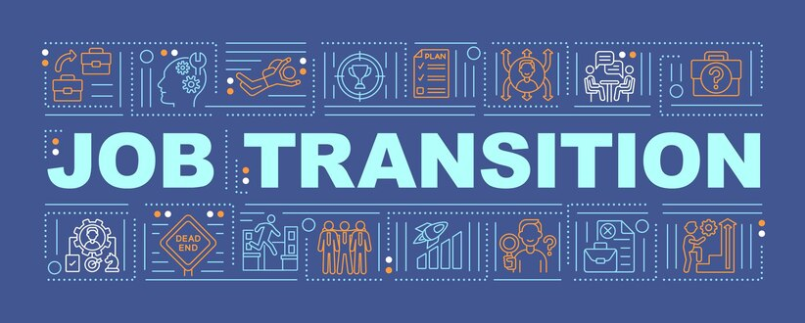Imagine standing at the crossroads of your career, holding two enticing job offers. The excitement is not explainable, but so is the confusion. How do you make that crucial decision to shape your professional journey?
In today’s dynamic job market, making the right career move is vital for personal and professional fulfillment. A decision between two job offers is a significant stage, impacting your path in ways you may not expect initially.
In this article, we’ll see the detailed process of choosing between two job offers, providing practical insights and strategies to ease the decision-making burden.
What is a Job Offer?
Crafting a compelling job offer involves a delicate balance between showcasing the company’s strengths and addressing the candidate’s needs. It’s a strategic process that extends beyond a mere listing of responsibilities and benefits. This goes beyond the standard template, tailoring the document to the candidate’s unique skills and the company’s distinctive culture. It’s a sign of an employer invested in individual success.
It outlines the terms and conditions of employment, covering various essential aspects. The job title and responsibilities provide a snapshot of the role, setting the expectations for the prospective employee.
Factors to Consider when Choosing Between Two Job Offers
The joy of having multiple job options can quickly turn into a daunting decision. Each offer has its merits, and weighing them requires a thoughtful and strategic approach. You must keep some factors in mind when thinking about choosing between two offers. Some of them are:
Check Salary and Benefits
When you’re deciding between two job offers, the money stuff matters a lot—like, a whole lot. The salary is the cash you get for doing the job, and benefits are like extra goodies that come with it.
First up, check the salary! It’s the paycheck and the cold, hard cash. Compare how much each job is offering you. More money is usually good, but remember, it’s not just about the big number. Consider if it covers your bills, lets you save, and maybe splurge.
Then come the benefits. These are like the sweet add-ons. Look for things like health insurance—basically, the stuff that helps when you’re not feeling so hot. Retirement plans are like saving money for the future. If a job offers these things, it’s like getting bonus points. Understanding the offered salary allows you to assess whether it aligns with industry standards and your financial expectations.
It shows that you are a candidate who carefully evaluates opportunities, considering both short-term and long-term implications. This level of engagement portrays you as a professional who values transparency and strives for a harmonious and mutually beneficial partnership with the employer.
If you’re a health buff, good insurance might matter more than a higher salary. Or if you’re all about saving for that dream vacation, a solid retirement plan could be the game-changer.
So, when you’re weighing job offers, look at the cash and the goodies. In summary, inquiring about salary and benefits when accepting a job offer is an essential part of the decision-making process, ensuring fairness, satisfaction, and a solid foundation for your future in the new role.
Company Culture
Let’s talk about company culture—it’s like the workplace vibe. Imagine you’re picking between two jobs; one is like a casual hangout with friends, and the other is all serious suits and ties. That’s company culture.
Company culture is also about values. Some places are all about teamwork and creativity, while others are more focused on hitting those targets. It’s like choosing a gang to join—except it’s a work gang, not a bank heist gang.
Check if the company’s values match yours. If they’re all about innovation and you’re a creative genius, it could be a perfect fit. Moreover, being aware of the company culture enables you to gauge opportunities for professional growth.
A culture that values learning, mentorship, and career development suggests a commitment to nurturing employees’ potential. This is particularly crucial for those looking for a job that not only meets their current needs but also offers a pathway for long-term career advancement.
Career Growth Opportunities
When picking between two job offers, you have to check out the career growth opportunities—that’s like the chances of moving up and doing bigger, cooler stuff. First off, see if the job is not just a job but a stepping stone. Look for chances to learn new things and take on more responsibilities. It’s like leveling up in a game but in the work world.
Ask yourself: Can you see yourself not just doing this job but moving up? the company culture plays a crucial role in shaping your daily work experience. Different organizations have distinct work cultures, ranging from collaborative and innovative to more traditional or hierarchical. Knowing the culture helps you anticipate the workplace dynamics, making it easier to adapt and thrive in your new role.
the company culture plays a crucial role in shaping your daily work experience. Different organizations have distinct work cultures, ranging from collaborative and innovative to more traditional or hierarchical.
Knowing the culture helps you anticipate the workplace dynamics, making it easier to adapt and thrive in your new role. Career growth opportunities—check them out and ensure the job isn’t a dead-end street but a highway to bigger and better things.
Check the Job Responsibilities
Understanding your job responsibilities is crucial during the negotiation process. It allows you to discuss workload, expectations, and potential areas for growth or advancement.
It helps ensure that your skills and expertise match the tasks and challenges the position presents. This alignment sets the foundation for job satisfaction and success, as you can confidently contribute to the organization’s goals.
Evaluate the level of challenge each job presents. Does one offer more complexity and variety in tasks? A role that challenges you can be more satisfying and contribute to your professional growth.
Think about the impact of your role. Knowing your responsibilities enables you to identify potential areas for skill development and growth within the role. It allows you to assess how the position contributes to your long-term career goals and whether the organization supports your professional development.
In short, when contemplating job responsibilities, it’s about envisioning yourself in the role, gauging the alignment with your skills and interests, and foreseeing the potential for personal and professional development. By carefully assessing these aspects, you can ensure that the job responsibilities resonate with your career objectives and contribute to a fulfilling work experience.
Company Reputation
When picking between job offers, it’s smart to check out the company’s reputation. This is like the company’s image—what people think about it. A good reputation is like a thumbs-up from others in the professional world.
Start by asking around or looking online. Are people saying good things about the company? Check out reviews or talk to current or former employees. It’s like doing a little detective work to see if the company walks the talk.
A strong reputation often means the company is doing things right. The company’s reputation reflects its workplace environment and culture. Knowing about its reputation gives you insights into the atmosphere, values, and overall ethos of the organization.
A reputable company tends to prioritize employee well-being and engagement. High employee morale is often a sign of a positive work culture where individuals feel valued and motivated. So, when weighing those job offers, give a nod to the one with the solid reputation—it’s like choosing a trustworthy partner for your career dance.
Check Employee Testimonials
Employees often share their experiences regarding career growth opportunities, professional development programs, and mentorship within the company. This information helps you assess the potential for advancement in your career.
This transparency allows you to make an informed decision based on real employee experiences. Understanding these aspects helps you assess whether the workplace aligns with your preferences and values.
Positive testimonials can indicate high levels of employee satisfaction. Satisfied employees are more likely to express contentment with their roles, the company’s leadership, and the overall work atmosphere.
Check online platforms where employees share their thoughts. Are people generally happy with their jobs? Do they highlight positive aspects or raise concerns? It’s like reading reviews before trying out a new restaurant; you want to know if others enjoyed the meal.
Pay attention to the themes in the testimonials. If people consistently talk about supportive teams or opportunities for growth, it’s a good sign. On the flip side, if there are recurring complaints, it’s a red flag.
Remember, employee testimonials provide real-world insights. Reading employee testimonials helps you gauge whether the company’s values align with your own. If the testimonials highlight a culture that resonates with you, it increases the likelihood of a positive and fulfilling work experience.
Learning and Development Programs
When looking at job offers, checking out the Learning and Development Programs is like looking at the menu before deciding on a meal—it tells you what’s in store for your professional growth. These programs are like the tools a company provides to help you learn new stuff and become even better at your job.
See if the company offers training sessions. These are like workshops where you can pick up new skills related to your job. It’s like leveling up in a video game but for your career.
Look for opportunities to attend conferences or seminars. It’s like getting a ticket to a show where experts share their wisdom. These events can broaden your knowledge and connect you with others in your field.
Conclusion:
In conclusion, deciding between two job offers is no easy task, and each factor plays a pivotal role in shaping your professional journey. While considering these factors, iApply emerges as the standout choice, offering a harmonious blend of competitive choices.
It offers a positive and inclusive company culture, various avenues for professional growth, clearly defined and engaging job responsibilities, and a sterling reputation as attested by satisfied employees.









